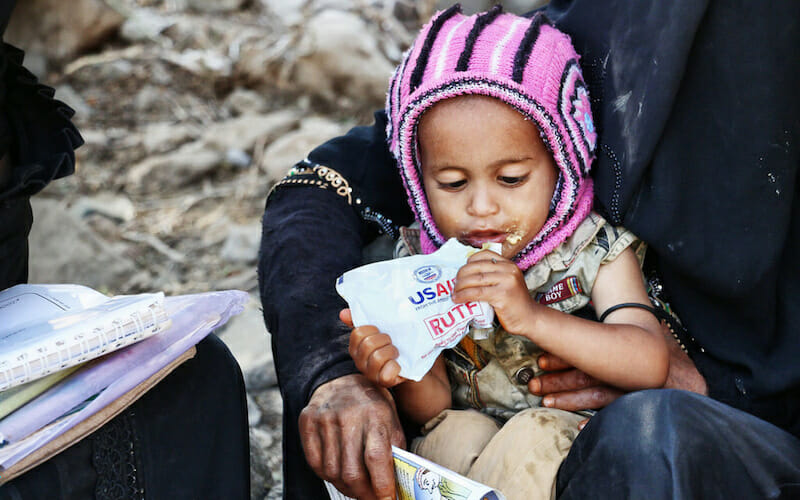
Using Food as a Weapon of War
In recent days, the Head of the United Nations World Food Program (WFP), David Beasley in an interview with the Associated Press, said that if the world wants to eradicate world hunger, then the international community needs to explore ways to end the fact that 19 countries are currently engaged in a “protracted conflict” plaguing nations from the continent of Africa to the Middle East. The downside to these conflicts is that they drain approximately 80 percent of WFP funds, as the UN global food agency must provide the necessary resources for civilians trapped in the throes of war.
Moreover, Mr. Beasley asserted that finding solutions to conflict would allow funding to be diverted to necessary global infrastructure projects stimulating economic growth in many developing countries. Further, reaching Sustainable Development Goal #2 is unattainable if conflicts persist. “Zero hunger by 2030? It’s a joke without ending conflicts,” Beasley contends.
The number of people globally facing extreme hunger rose last year from 777 million to 815 million. The increase is directly attributable to ongoing conflicts. Beasley stated that “It’s a disgrace on humanity, the number of innocent victims of conflict, children, that are starving to death because of nothing but man-made conflict.”
The UN food agency head was also interviewed by “60 Minutes” for a segment titled, “Catastrophe.” The piece examined how the Yemeni civil war threatens 7 million people and has brought them to the “brink of starvation.” Saudi Arabia’s blockade of Yemen further escalates the tensions in this region. The blockade was instituted following an attack by Shiite Houthi rebels backed by Iran. The global pressure upon Saudi Arabia to confine the blockade to rebel-held areas has done little to alleviate the plight of the Yemeni civilian population.
In addition, news from this conflict is scarce due to the Saudis ban on journalists entering the area. The “60 Minutes” crew was able to capture the horrible images of emaciated children who have become the silent victims in this civil war.
Mr. Beasley indicated that if the required financial resources are not received soon, the result will surely be an outbreak of famine where he estimates that “125,000 little girls and boys will die.” The Saudis do not want the world to view these horrifying images and the humanitarian crisis, mainly wrought by the Saudi-led coalition, has seen the deaths of some 3,000 civilians.
The use of food as a weapon of war is deplorable, but unfortunately it is an all too common tactic utilized by parties to a conflict. The blocking of relief supplies is a violation of international humanitarian law – the law of armed conflict. The legal basis for this can be found in Additional Protocol I (API) to the 1949 Geneva Convention.
Former UN Secretary-General Ban Ki-moon, when speaking about the crisis in Syria last year, stated “The use of starvation as a weapon of war is a war crime.” Eventually, the challenge will be the prosecution of the perpetrators of such crimes.
Further exacerbating an already dire situation in Yemen is the cholera epidemic. The lack of proper sanitation and water treatment facilities has caused this health emergency. The greatest obstacle facing aid workers is gaining access to those in need.
The mission of the WFP is to provide food assistance to vulnerable populations. Its largest contributor, the United States, allows for the UN food agency to feed 90 million people in more than 73 countries. The food insecurity-conflict nexus presents significant challenges to the WFP.
Estimates indicate that 2 billion people in 2016 were residing in states afflicted by conflict and violence. Fragile states create national security concerns. Moreover, the number of internally displaced persons (IDPs) has grown exponentially due to the ongoing conflicts.
Conflict and food insecurity threatens entire generations of young people. It is incumbent upon the international community to develop ways to locate the root causes of these conflicts for the most innocent amongst us – our children.

